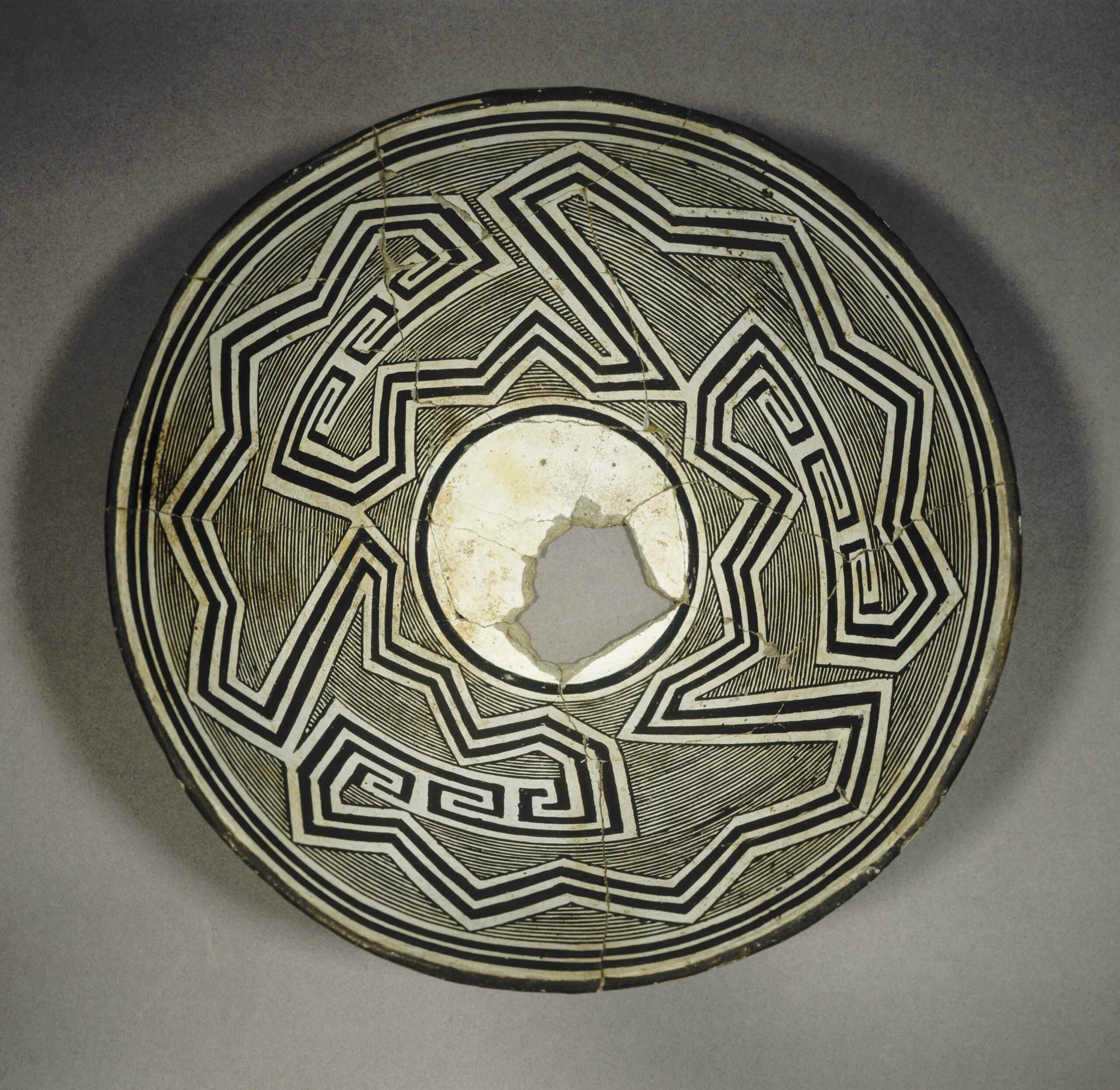AMASYA, TURKEY—Esra Keskin of the Hitit University Black Sea Archaeology Research and Practice Center says that 2,000-year-old mosaics uncovered in a palace-like structure in Yavru village are unlike other artifacts in the region. They are made up of unique “kilim-like motifs” surrounded by curb stones. “The eye shapes on the kilim designs of the mosaics still retain their secrets. The mosaics cover an area of 30 square meters and the kilim-like motifs on it show that they might have been the coast of arms of a military unit in the Roman era,” Keskin said. The excavations are being conducted by the Amasya Museum Directorate.
Unusual Kilim-Like Designs Found in Roman Mosaic
News July 15, 2013
Recommended Articles
Artifacts July/August 2025
Maya Ceramic Figurine
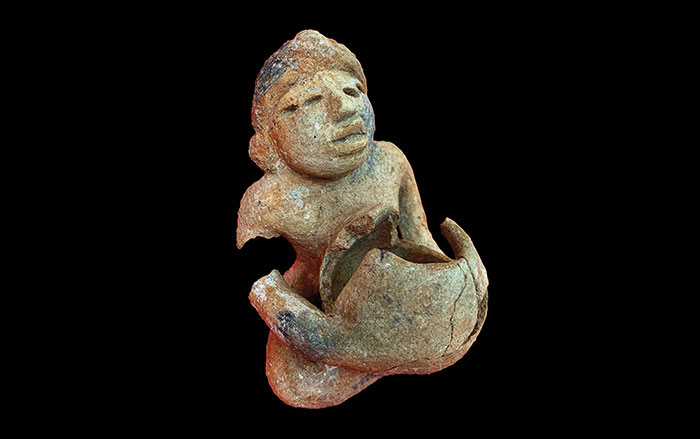
Off the Grid July/August 2025
Vichama, Peru
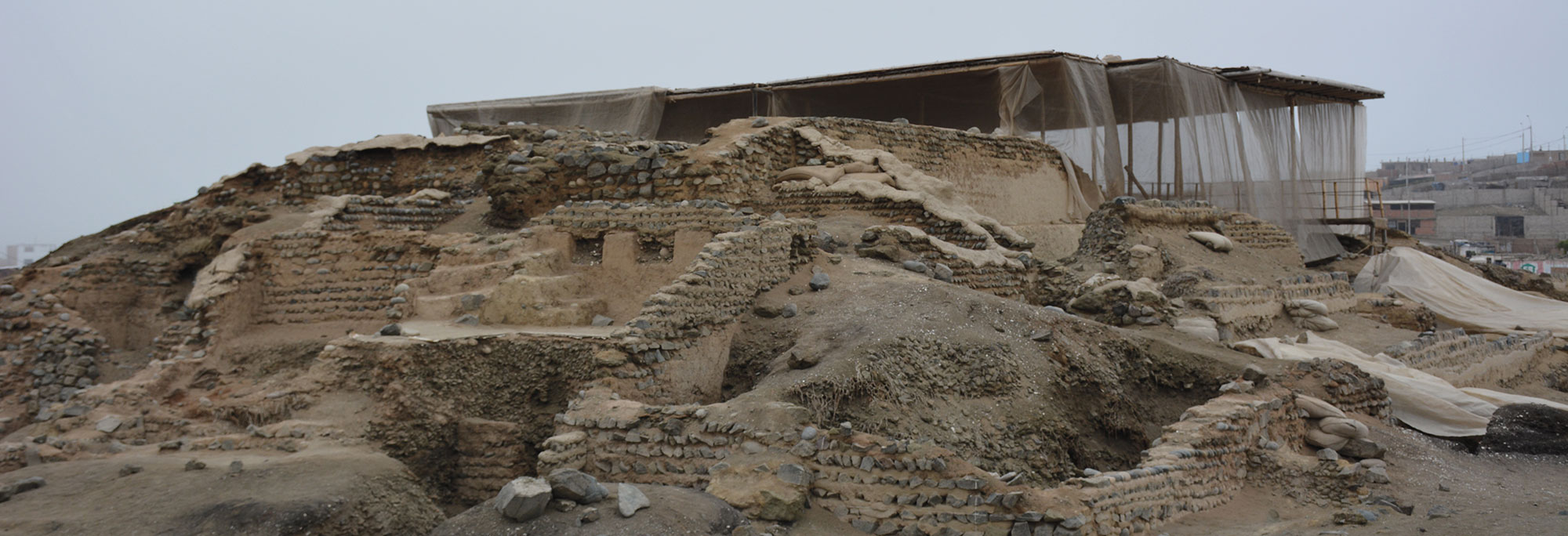
Digs & Discoveries July/August 2025
Bound for Heaven
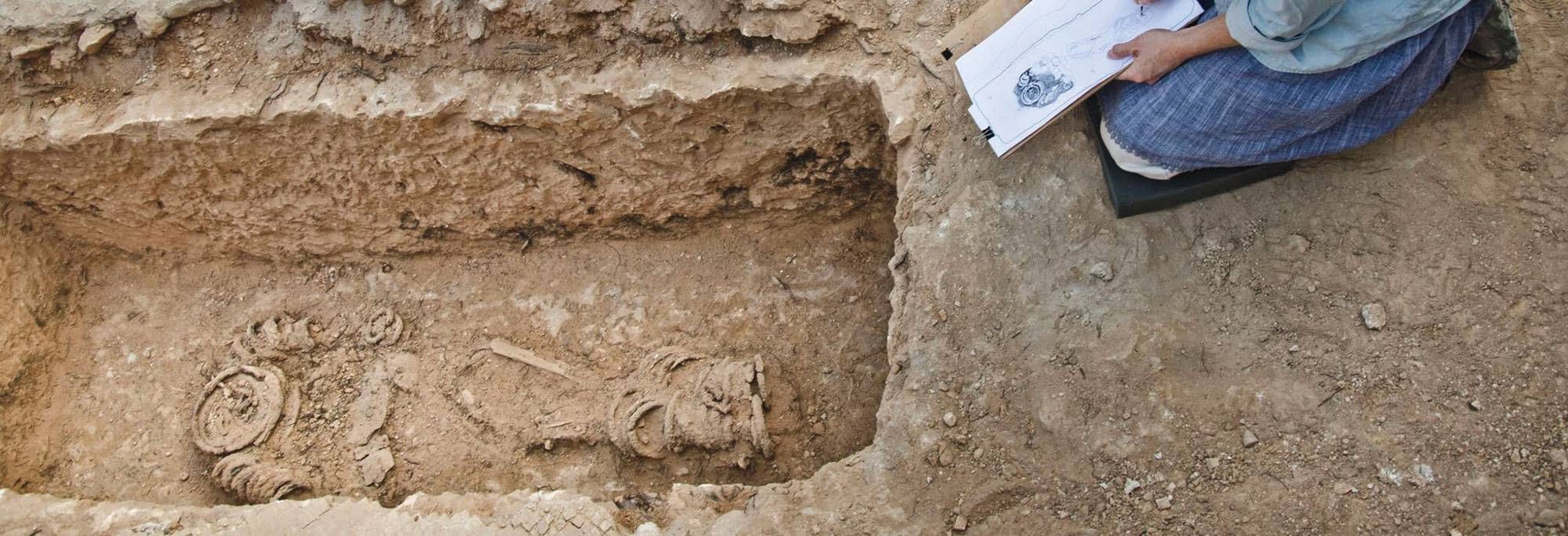
Digs & Discoveries July/August 2025
Saints Alive
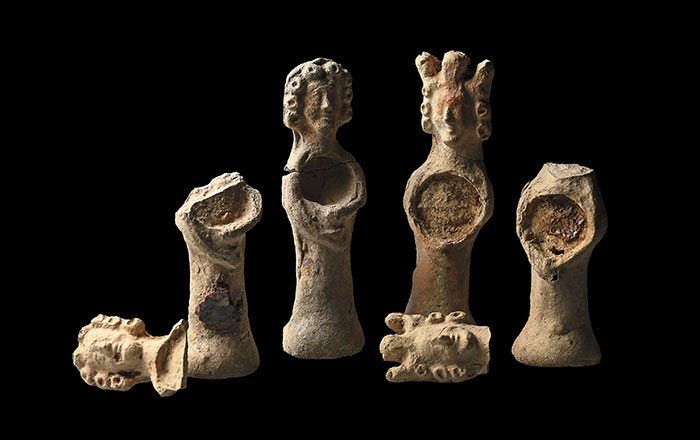
-
Features May/June 2013
Haunt of the Resurrection Men
A forgotten graveyard, the dawn of modern medicine, and the hard life in 19th-century London
 (Private Collection/The Bridgeman Art Library)
(Private Collection/The Bridgeman Art Library) -
Features May/June 2013
The Kings of Kent
The surprising discovery of an Anglo-Saxon feasting hall in the village of Lyminge is offering a new view of the lives of these pagan kings
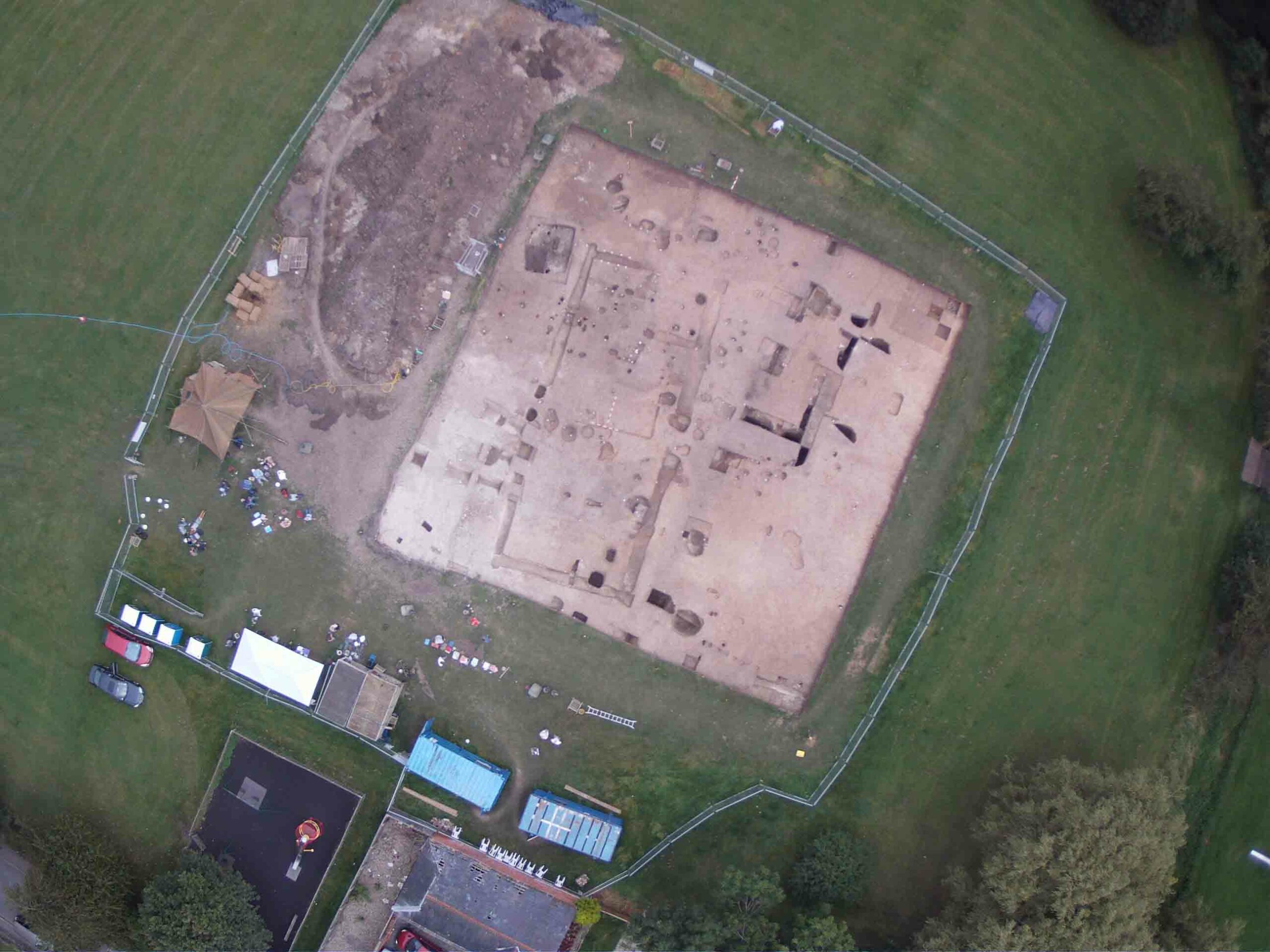 (Photo by William Laing, © University of Reading)
(Photo by William Laing, © University of Reading) -
Letter from Turkey May/June 2013
Anzac's Next Chapter
Archaeologists conduct the first-ever survey of the legendary WWI battlefield at Gallipoli
 (Samir S. Patel)
(Samir S. Patel) -
Artifacts May/June 2013
Ancient Near Eastern Figurines
Ceramic figurines were part of a cache of objects found at an Iron Age temple uncovered at the site of Tel Motza outside Jerusalem
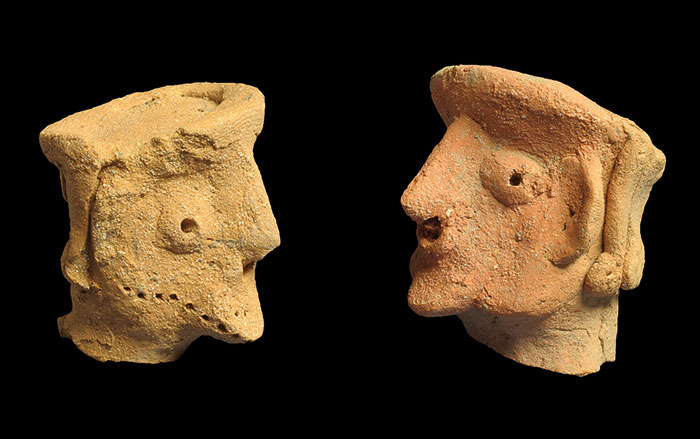 (Clara Amit, courtesy of the Israel Antiquities Authority)
(Clara Amit, courtesy of the Israel Antiquities Authority)


